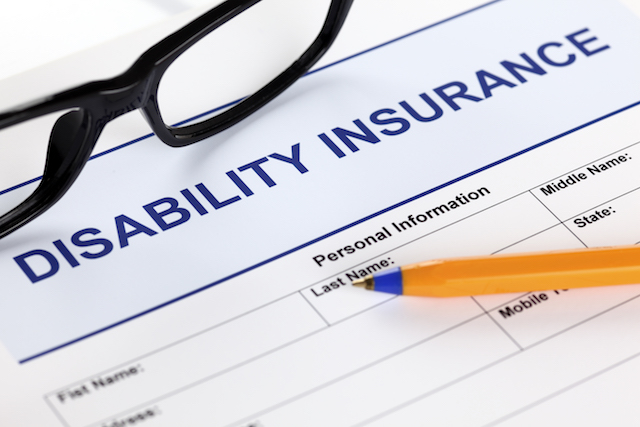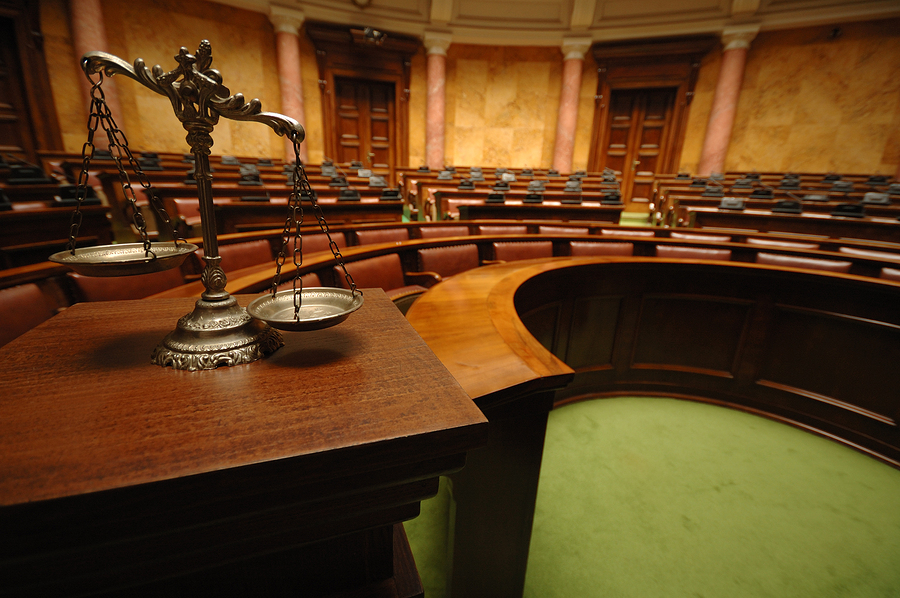What Property is Safe from Liquidation in Chapter 7 Bankruptcy in Pennsylvania?
One of the biggest questions that people ask themselves when they are in financial trouble and contemplating filing for bankruptcy is “which of my property will I be able to keep?” Bankruptcy filings can allow you to protect certain personal assets from creditors that would otherwise be lost. Property that is not protected, or “exempt” can be seized by creditors through repossession or through a forced sale where the creditor takes the money generated from the sale.
While a bankruptcy filing can wipe out most debts and be a big step towards a fresh start, it is important to know which debt can actually be wiped out, and which will stay no matter what. It is critical to understand the total financial picture you will have after you complete a bankruptcy before you even decide to file for bankruptcy in the first place. If you live in or around Philadelphia and are considering the option of filing for bankruptcy, then contact our experienced Philadelphia bankruptcy attorneys to best understand your options.
Many people who would otherwise benefit from filing for bankruptcy do not consider the option because of a misguided fear that they will lose their personal property, car, or home. While having to sell your property is technically a possibility, in most Chapter 7 cases, a debtor will keep all their possessions. If you have any questions regarding Chapter 7, what property is exempt, or bankruptcy in general, contact Young, Marr, Mallis & Associates at (215) 701-6519. Our initial consultations are always free of charge.
How a Chapter 7 Bankruptcy Works
Before discussing what property a Chapter 7 debtor could keep or what property will be sold, it is important to understand how a Chapter 7 case works. First, Chapter 7 was designed for individuals, couples, and businesses with limited income and assets. The premise is that the debtor does not have the income or resources to pay their financial obligations, so certain specified debt is dischargeable. By eliminating their debt, the debtor is given a fresh financial start.
The Bankruptcy Estate
When you file a Chapter 7 case, all your property becomes part of the bankruptcy estate. The bankruptcy estate will include your home, car, personal property, cash, and any other assets you own. A court-appointed trustee could take possession of any property in the bankruptcy estate, sell it, and pay your creditors with the proceeds. However, bankruptcy is supposed to provide a fresh start. If someone losses all their possessions, their start is not exactly fresh. Therefore, the bankruptcy code allows debtors to protect certain property through very specific exemptions. Additionally, many states offer debtors exemptions as well.
Bankruptcy Exemptions
In both Pennsylvanian and New Jersey, debtors are permitted to pick which set of exemptions they wish to use in their bankruptcy: federal or state. However, a debtor is not allowed to combine exemptions – they are only allowed to use one set or the other. Our Philadelphia bankruptcy lawyers will carefully review your assets to determine which set of exemptions protects the most property.
While this might seem intimidating, very few people who file a Chapter 7 case lose any property. In cases where there is significant nonexempt property, our office will typically advise filing Chapter 13 instead. Before filing a Chapter 7, you need to review your assets with our Pennsylvania bankruptcy lawyers. Any attempt to not disclose your assets is considered bankruptcy fraud and could result in significant fines and imprisonment.
Pennsylvania and Federal Homestead Exemption
The most valuable thing most people own is their home. Fear of losing it keeps many away from filing for bankruptcy. This is especially the case when they search the internet and discover that Pennsylvania does not offer debtors a homestead exemption under Pennsylvania law.
This means that if you own a home and have equity, you will need to protect your real estate using the federal bankruptcy exemptions. The federal bankruptcy exemptions currently allow you to protect up to $25,150 of equity in your home. If you are married, then the number can be doubled to $50,300. Equity is the amount your home is worth minus the amount you owe on your mortgage(s). For example, if I own a home worth $800,000 and I owe on my mortgage company $500,000, then I have $300,000 of equity. In this example, I would not be able to exempt my home because the equity is over $25,150.00. If you cannot exempt your home, then the bankruptcy trustee can take your property to pay off your credit card debt and other unsecured debts.
While there is no homestead exemption in Pennsylvania law, under Pennsylvania law, a married couple could protect a home with a significant amount of equity, or one without a mortgage, if they own the property as “tenants by the entirety” and all their debt is separate. In Pennsylvania, if one spouse has a substantial amount of debt in their name, a creditor is not permitted to go after the marital home. However, when you opt for the Pennsylvania exemption, you are not permitted to use any of the other generous federal exemptions.
Pennsylvania Chapter 7 Exemptions Available in a Philadelphia Chapter 7 Bankruptcy
The Pennsylvania bankruptcy exemptions are somewhat limited. In addition to the “tenants by the entirety” exemption discussed above, Philadelphia files have a $300 wildcard exemption that could be used for any property.
Pennsylvania does not have an exemption for motor vehicles. This means any vehicle you own could be liquidated to pay your creditors. Typically, if you have a lien on your car, there will not be enough equity to warrant the sale of the vehicle. Our Bucks County bankruptcy attorney will have to compare the likely sales price and the outstanding balance.
Under the Pennsylvania exemptions, you are allowed to keep any work uniforms, bibles or schoolbooks, clothing, and a sewing machine. However, there is no exemption for tools of your tools of trade, so they could be liquidated. You are also permitted to keep 75% of your earned unpaid weekly employment income.
Many people worry about their retirement accounts. If you have a 401(K), IRA, Roth IRA, or similar account, you could exempt a yearly deposit of $15,000. However, anything deposited within the twelve months before your filing date is not protected. Public servants, including police officers, firefighters, city employees, public school teachers and employees, are permitted to exempt their full pensions.
Public welfare benefits, including unemployment compensation and worker’s compensation benefits, are exempt under Pennsylvania law.
Insurance proceeds will often depend on the terms of the policy. Generally, you are permitted to exempt $100 per month of insurance or annuity payments.
The only benefit the Pennsylvania exemptions offer is the homestead exemption. In most cases, our Allentown bankruptcy attorneys will advise you to choose the federal exemptions.
Federal Chapter 7 Bankruptcy Exemptions in Philadelphia
As you can see, the Pennsylvania bankruptcy exemptions are not terribly friendly to a Chapter 7 debtor. Unless you need the homestead exemption, you will most likely benefit from choosing the federal exemptions. Below is a list of the current federal exemptions.
- Homestead – $25,150
- Motor Vehicle – $4,000
- Jewelry – $1,700
- Wrongful Death Compensation – No Limit
- Personal Injury Compensation – $25,150 (Not Including Pain and Suffering)
- Tools of the Trade – $2,525
- Life Insurance Policy with a Cash Value – $13,400
- Alimony or Child Support – No Limit
- Tools of the trade – up to $2,525
- Roth IRA – $1,362,800
- Health Aids – No Limit
- Household Items and Furniture – $625 Per Item
Chapter 7 debtors are also afforded a wildcard exemption under the federal bankruptcy exemptions. Unlike the Pennsylvania $300 exemption, you could actually protect something with the federal exemption. The base amount is $1,325. However, if you have not used your homestead exemption, you are permitted to apply $12,575 of the unused portion to any property.
If you are married and are considering filing for bankruptcy with your spouse at the same time, all of the exemption totals listed above will double. Any money or property you have that is not exempt under state or federal bankruptcy law will likely be seized in a bankruptcy proceeding. It is also important to note that any assets that you obtain within 6 months of filing for bankruptcy are also not protected under any exemption. In many cases, those that file for Chapter 7 bankruptcy end up getting to keep their property.
Most people that file for Chapter 7 bankruptcy are “no-asset” filers. In these cases, debtors do not actually give up anything to the bankruptcy trustee as things like household goods and personal items don’t have much value in a resale marketplace. The whole idea of bankruptcy is to allow debtors the chance to start over and start fresh. Leaving debtors with nothing to start with is not the best formula to help them regain their financial footing. These exemptions make filing for bankruptcy much more doable and can make a Chapter 7 filing a realistic and intelligent way to get a fresh start that has the potential for long-term success.
Debts That are Not Eliminated by Filling Chapter 7 Bankruptcy
Filing a Chapter 7 bankruptcy can be a great first step towards regaining control of your financial life, but a Chapter 7 bankruptcy does not wipe out all of your debts. Certain debts cannot be eliminated through a bankruptcy filing, they include:
Child support obligations
Alimony payments to an ex-spouse
Certain taxes
Fines related to property ownership
Most student loans
To best understand which of your debts will likely be discharged through a Chapter 7 bankruptcy filing, it is important to seek the advice of an experienced Bensalem bankruptcy attorney as soon as possible. Your financial situation is unique, so while finding a website such as this can be a great source of information, it is not a replacement for the advice of a qualified attorney. Chapter 7 bankruptcy filings aren’t for everyone, but they can be exactly the fresh start you are looking for.
Call for a Free Bankruptcy Consultation
If you are currently facing financial hardship while living in or around Philadelphia and are wondering if filing bankruptcy might be for you, then it is important to seek the advice of an experienced bankruptcy attorney to help assess your situation. At Young, Marr, Mallis & Associates Law Firm, we bring over 30 years of experience in helping people determine what their best approach is based on their specific financial situation. We are proud to offer a FREE consultation to help anyone struggling with excessive debt to determine if bankruptcy is the right solution. For help with your case, contact us today online here or call us at (215) 701-6519 to schedule your free consultation.






























